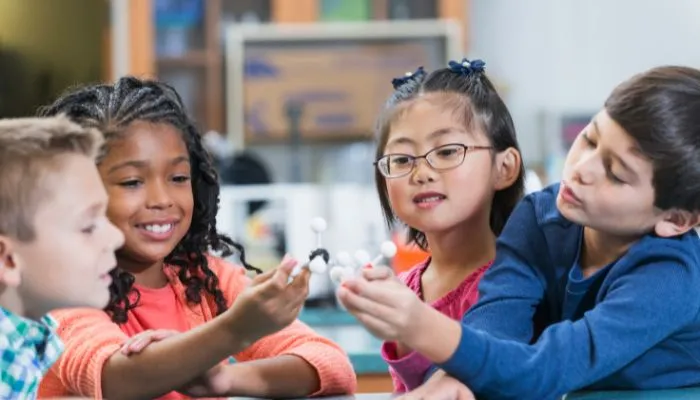A growing number of parents in Friendswood looking for alternative educational choices are becoming interested in learning about Montessori schools. The Montessori approach is becoming more and more popular as families experiment with different teaching philosophies because of its distinctive fusion of developmentally oriented education and child-centred learning. However, what is the reason for Friendswood’s adoption of the Montessori school model? Let’s investigate the elements behind this rising renown.
Holistic Development at the Core of Montessori Schools
The Montessori School’s emphasis on holistic development is one of the main reasons parents are choosing to send their children there. The Montessori education concept promotes growth in the cognitive, social, emotional, and physical domains, in contrast to standard education approaches that frequently place a strong emphasis on academic accomplishment and test scores.
Also Check: Sustainable MBA Programs for Integrating Environmental Responsibility in Business Education
Children learn to think independently, solve problems, and make decisions at a Montessori school. These abilities are developed early on, creating a habit of lifelong learning that prepares children for success in both the classroom and in other spheres of life. Parents in Friendswood are beginning to understand the importance of this well-rounded development strategy in our fast-paced, constantly evolving environment.
Individualized Learning Paths
Every kid learns differently, and a Montessori school recognizes and accommodates this fact. The Montessori approach recognizes the diversity of children’s interests, abilities, and difficulties. Consequently, it permits every child to pursue their educational journey, in contrast to traditional educational institutions that could rigorously follow a set curriculum.
In Friendswood, Montessori schools are viewed as a welcome option by parents who prefer a more individualized educational experience for their kids. Rather than acting as instructors, teachers serve as guides, offering assistance when required while letting students study the material at their leisure. The provision of customized attention to pupils mitigates the pressure to adhere to peer expectations or timeframes, therefore promoting a sense of mastery and confidence in their ability to learn.
Hands-On, Experiential Learning
Youngsters who attend Montessori schools thrive on experiential, hands-on learning. Students are encouraged to interact with their environment and learn by doing, as opposed to just memorizing facts. The use of specifically created Montessori materials that improve sensory and cognitive experiences is part of this active learning strategy. Through activities that enable children to touch, view, and handle objects, students may study topics in science, math, language, and other areas.
Many parents in Friendswood are in favour of this teaching strategy because they wish to provide their kids with a more dynamic and interesting education. Because its activities are tactile and grounded in reality, children are better able to understand concepts and apply them to real-world scenarios.
Fostering Independence and Responsibility
In a Montessori school, children are encouraged to take charge of their learning and their environment. From an early age, they learn how to make decisions, solve problems, and manage their time effectively. The classroom environment is structured in a way that allows children to choose their activities, care for their space, and even help their peers.
This emphasis on independence and responsibility is particularly appealing to parents in Friendswood who value the development of life skills alongside academic learning. By fostering these traits early on, Montessori schools prepare children for future challenges, both in education and in everyday life.

Strong Sense of Community
Montessori education places a great emphasis on community, respect, and teamwork, which aids in the development of social responsibility in young people. Montessori schools frequently include mixed-age classes where older students may teach younger students, encouraging empathy and leadership. Parents in Friendswood find their model appealing for another reason: it fosters a feeling of community.
Montessori schools offer a caring setting where kids may form lasting relationships in a world where social ties are growing more and more shattered. Friendswood parents value the emphasis on fostering a cooperative, encouraging environment that instils in kids the value of respecting and cooperating with others.
Conclusion
There are several reasons for the rising acceptance of Montessori education in Friendswood. With its emphasis on customized learning paths, hands-on activities, and the promotion of independence, the Montessori School method presents parents with a compelling substitute for traditional education. It’s not surprising that more and more families in the Friendswood area are choosing Montessori schools as they realize the advantages of this distinctive educational approach.
In keeping with the requirements and ideals of contemporary education, it provides parents with a perfect way to provide their kids with a loving, developmentally oriented atmosphere. The focus on developing autonomous, well-rounded people is one of the main reasons why more families are choosing Montessori schools to provide their kids with a strong education.



